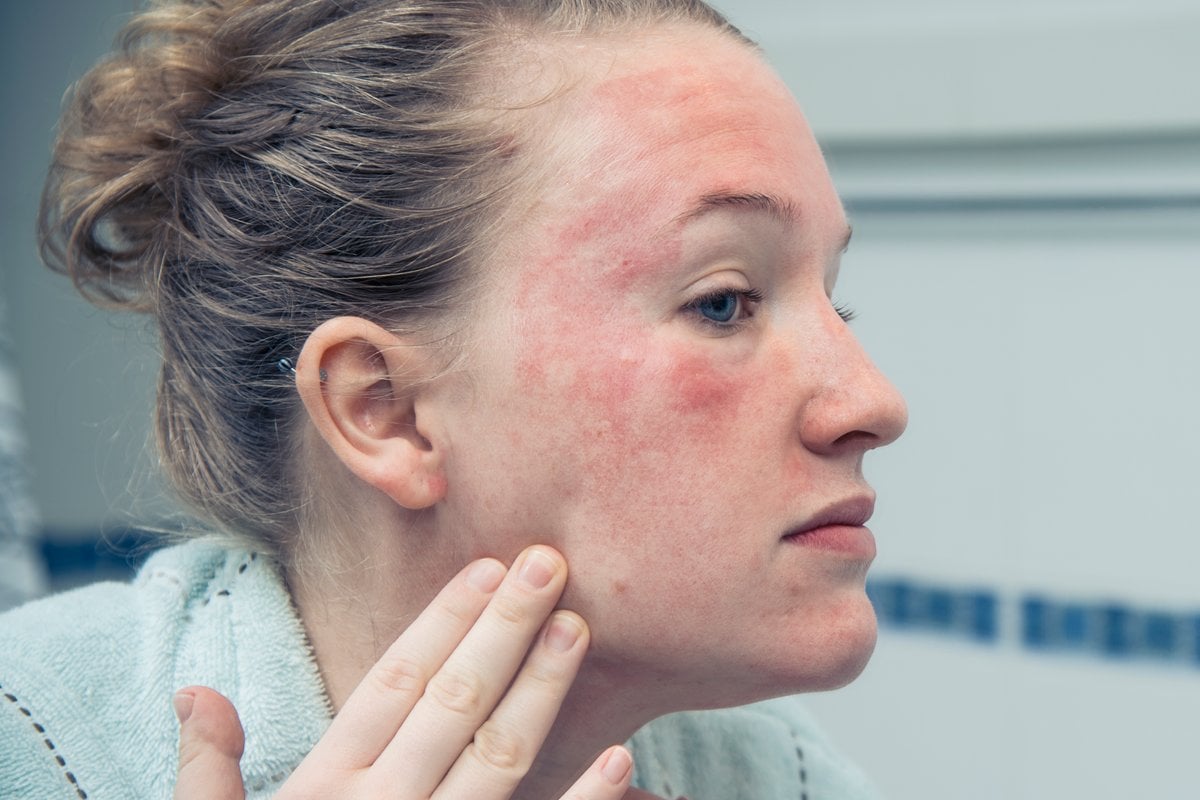
Bet you feel like a real bloody goose, huh? Cause we do. We all do.
Turns out a lot of us have been ploughing away at our skin with approximately *way* too many chemical-laden scrubs, toners and actives, literally giving ourselves long-term sensitivity.
FKN WHOOPS. ¯\_(ツ)_/¯
Watch: Here are 7 ways to improve your skin while you sleep. Post continues below.
It sounds like we're being a touch dramatic, but it's true you guys.
We were talking to dermatologist Dr Katherine Armour from Bespoke Skin Technology, and we started ranting about how sensitive and s**t our skin was, when she brought up this whole 'man-made' sensitivity thing.
And while the symptoms and causes of sensitive skin obviously differ between individuals (underlying issues like eczema and such can trigger sensitive skin), skin experts are now noticing a HELLUVA lot of 'man-made' sensitivity going on.
Listen: Leigh takes us on the road to recovery and shows us how using too many actives can lead to a chemical burn. Post continues below.
And it's all due to people simply overusing certain ingredients and products.